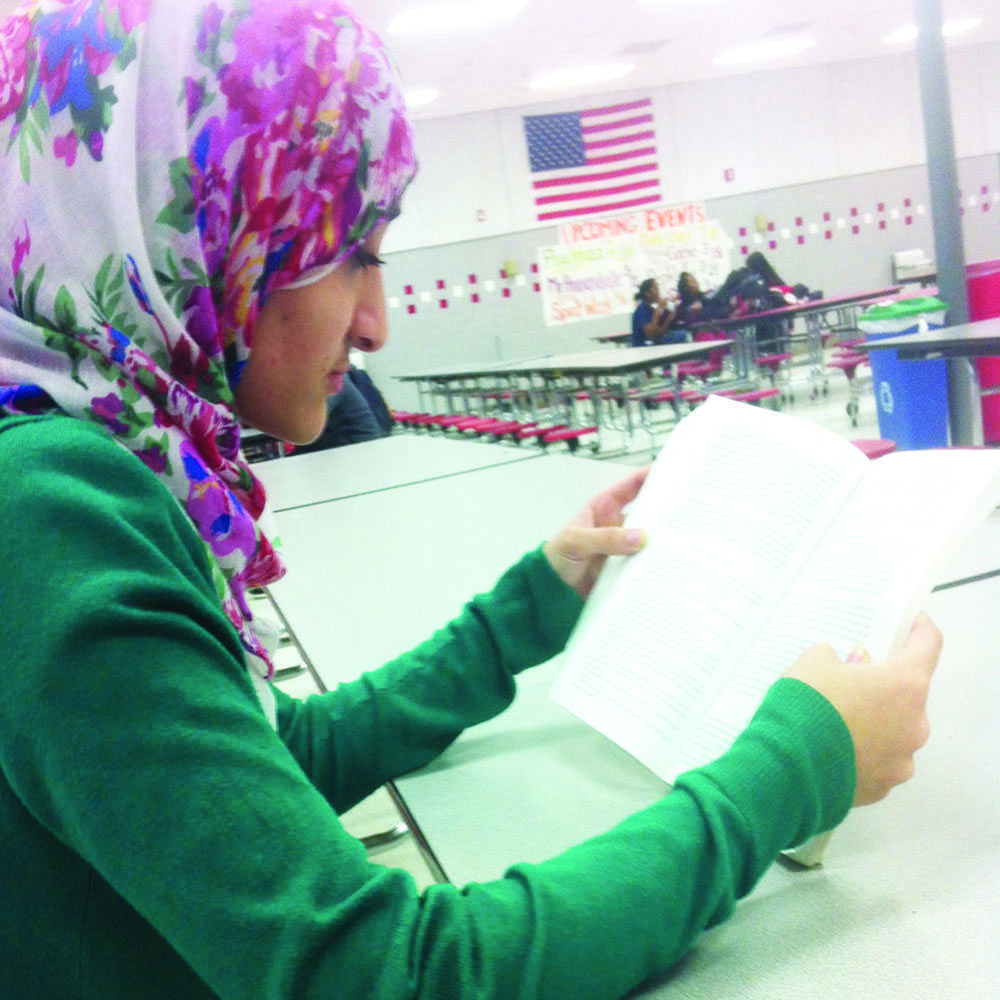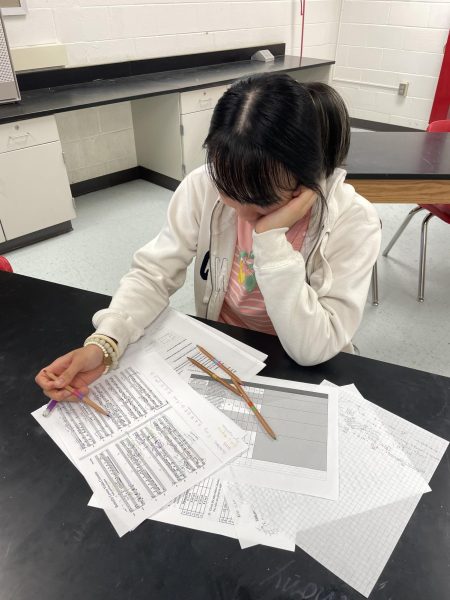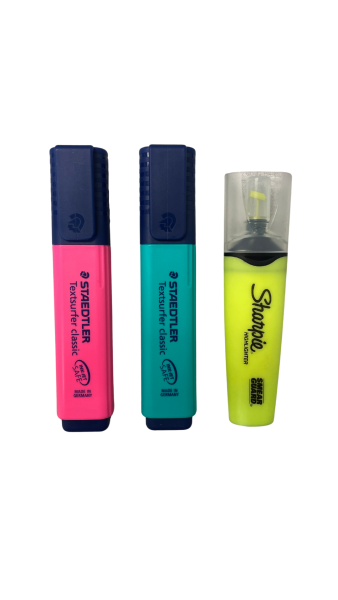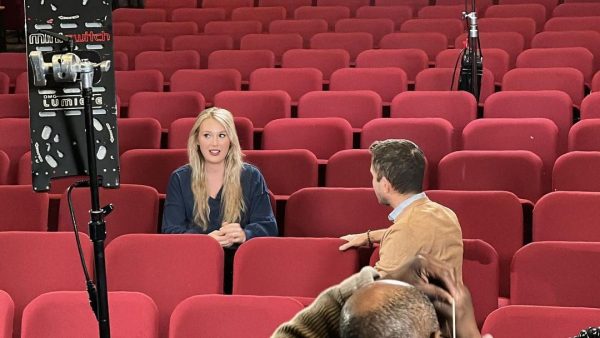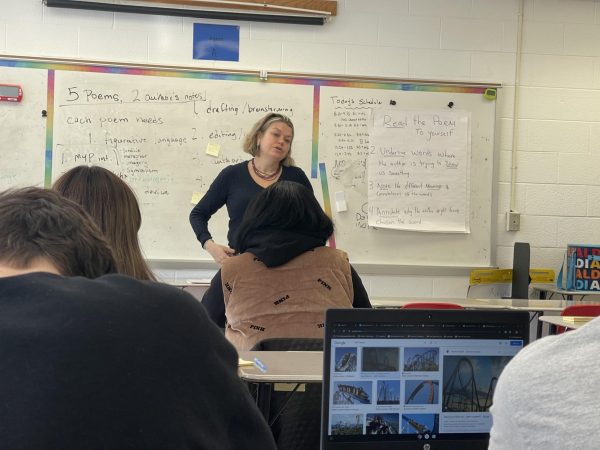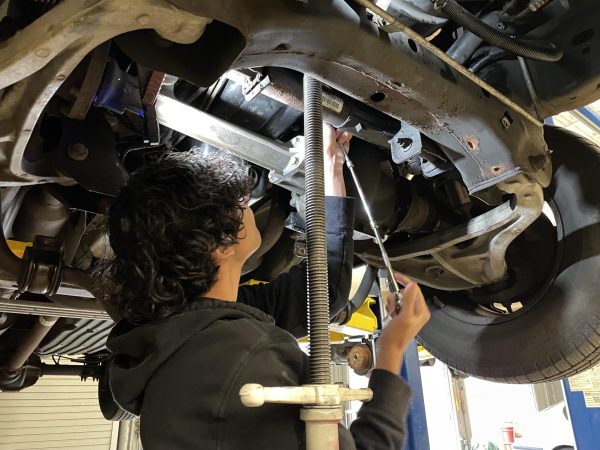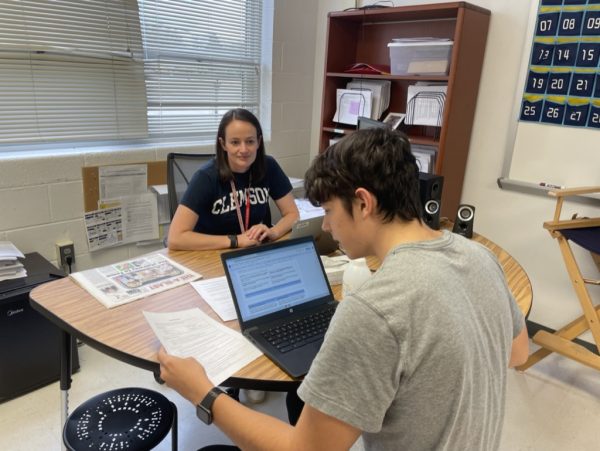Drop everything and read
Starting on February 21, the newly implemented Drop Everything and Read program will be held White Days on Fridays during W4 classes for the entire school.
During this time, students are not able to visit their counselors, go to the attendance office or even go to the library to check out a book to read during this silent reading time.
“The expectations for DEAR are that students will leave their electronic devices alone for 25 minutes and pick up a book or newspaper and read!,” English teacher and Literacy Coach Courtney Dearinger said.
The DEAR program was an idea created by a group of teachers and counselors called the Learning Seminar Committee but is now being fully implemented into second semester.
“It is supposed to be pleasurable reading, for sure, but the hidden benefits are amazing! Reading for sustained amounts of time will only help students improve their reading for school as well,” Dearinger said.
Research on has shown that silent reading helps brain function more effectively and has many benefits including improved vocabulary, fluency in understanding material and also the students’ reading abilities.
This is where the silent aspect of the 20 minute reading comes in- as opposed to being read out loud to by teachers or reading aloud, which students do all the time.
Students will be able to use this time to actually use their brains in figuring out different words that is found in literature and will then be able to find the meanings of these words on their own, more often.
“I think it’s also really important for students to have a few minutes of quiet time during the day. We get very few moments of peace during the school day!”
There are many other benefits to having a reading period implemented into biweekly W4 classes, for that of both students and teachers.
As students will be able to work with something that is not exactly required for any of their classes, they will perhaps gain an interest in reading on their own time.
“And I know most teachers love to read but just don’t have the time to do it. This is a perfect excuse to pick up that book we’ve been wanting to read but haven’t had time to start,” Dearinger said.
Books are natural conversation-starters, so students and teachers would also be able to communicate more, and effectively as well.
Some students think that the DEAR program is a good idea and will help the students with their time.
“I think I’ll like it because it’s nice to relax and just read,” sophomore Julia Quizon said.
“In our hectic high school life, we don’t have time to just sit down and read a book, so [the program] is really good. It should be fun.”
Others think that the newly implemented program will take away time from the students.
“I’m pretty sure a lot of students who take rigorous courses use that time to get their work or hours done, and catch up,” junior Atiqa Khan said.
Khan said that silent reading is meant to be for leisure time but that work that could have been done during that time, that actually receives grades for academic courses, does not get finished.”
Although there are conflicting opinions with the introduction of the silent sustained reading (SSR), only a short amount of time is being used, that students usually spend idly.
Dearinger said that the DEAR program leaders understand that some students may utlize the W4 class to complete work, but it only comprises of a very small time every other Friday.
Students still have Atom Time, and will still have the oppurtunity to make up tests or quizzes or finish up work.
Even though time may interrupt some students’ time and assignments, this program may actually help their planning skills and reduce procrastination.
Students simply need to know the dates in which the SSR times are on and plan out ahead of time to make sure that their work is completed on time, and not before a major deadline.
Despite criticism, DEAR could be that one step towards more proficient reading for all students because of concern over the ability and performance of students’ literacy skills.
“The reading levels vary greatly across the school, but in every grade level, from grade nine to twelve, about one-fourth of students are reading significantly below grade level, while another one-fourth are reading just below grade level,” Dearinger said.
Based on the statistics, half of the students population is reading way below reading level, under the regular reading mark.
The one-half of students reading below grade level, whether in ESOL or who take regular classes are not getting enough stimulation or reading activity in their regular routine are able to benefit and improve on their skills through this program.
AHS is behind on this trend- most FCPS schools have some kind of silent sustained reading program already, perhaps in their free period and also in their English classes.
The schools that do have this kind of program, implement it into their students’ schedules on a daily basis.
An effort at this kind of beneficiary reading program was put in place a couple of years ago, but the impact of the program was not known.
“I don’t know exactly what it entailed or how successful it was. I do know that some teachers have already been implementing silent sustained reading in their classrooms on their own, to great success,” Dearinger said.
The managing staff hopes that instead of only a few students- that every student will be able to get the chance to partake in SSR.
This program is hoped to encourage students to read more often on their own, thus improving students’ literacy, analytical and reading skills.
It’s also meant to help those who don’t particularly have an interest in reading, and will make all students be pro-active in learning themselves and be more aware of their reading abilities.
“We also hope students who are reluctant readers will find some books they actually enjoy reading and will start to become lifelong readers on their own,” Dearinger said.
“Every student can find something of interest to read for 20-25 minutes, whether it be the A-Blast, a magazine, or a book. The trick will be finding the right material for students at first.”

Aniqa is a staff writer for the A-Blast and a senior at AHS. She is a member of the Green Atoms, NHS, MHS, NEHS and other activities. She also serves as...



